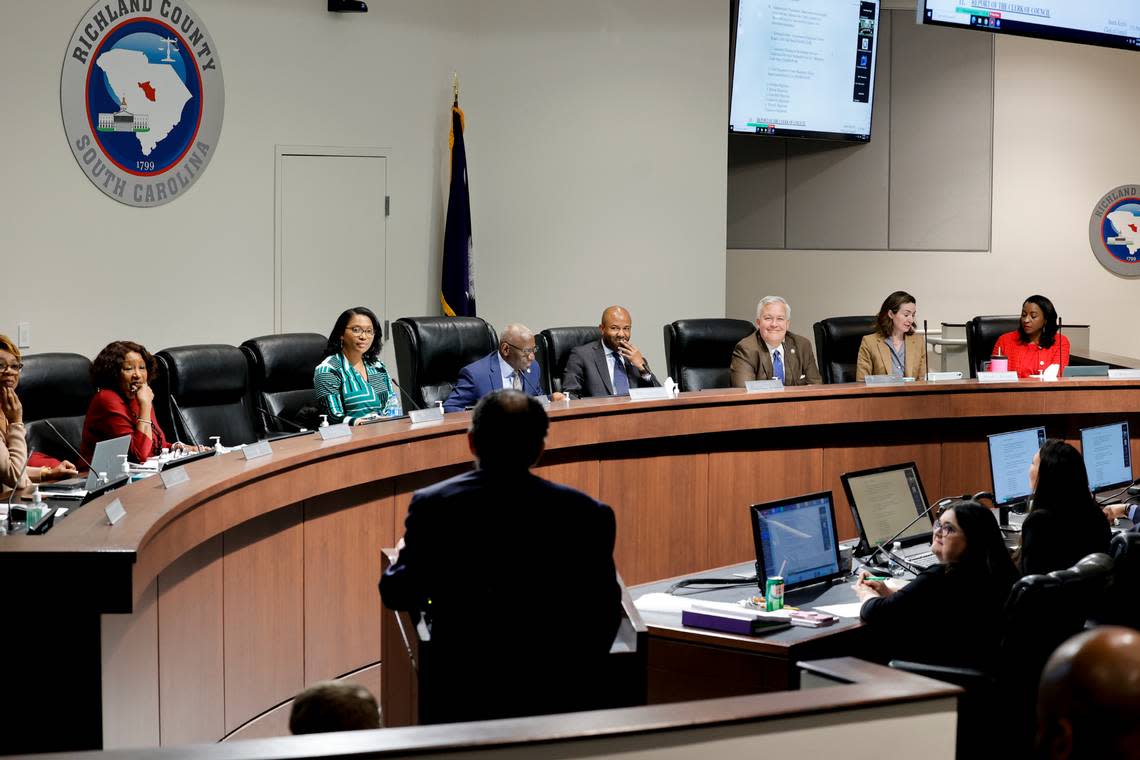Airbnbs could soon have new rules in Richland County, joining Columbia and other SC cities

Richland County may soon join Columbia and other South Carolina jurisdictions in requiring Airbnbs and other short-term rentals to have permits and pay taxes.
Richland County Council on Tuesday approved a measure to require all short-term rentals in the unincorporated county to have a county business license and to pay a 3-percent accommodations tax. The council unanimously approved the rules Tuesday but will need to vote twice more before the rules are final.
If passed, anyone operating an Airbnb or other short-term rental — meaning a property being rented for 30 days or less — will have to have a Richland County business license and be subject to safety inspections. The cost of a business license in the county is determined by how much revenue a business makes in a year.
The rental operators will also have to provide at least two parking spaces and keep a record of all guests who have stayed in the last two years along with the guests’ contact information.
The county previously considered adopting rules for the rentals but paused the discussions while the state Legislature debates a number of bills that could prevent cities and counties from limiting short-term rentals.
If the state did forbid local jurisdictions from restricting where short term rentals could operate, the new regulations could cost the county more than $100,000 per year because suddenly the number of possible rentals would require up to two more staff members, according to a memo presented to County Council Tuesday.
But the memo also estimates that if 500 short-term rentals were licensed in Richland County, they would produce an annual gross revenue of $100,000 from business licenses and $1.5 million in new accommodations taxes.
For now, however, Richland County likely won’t have more than 100 short-term rentals, estimated Assistant County Administrator Aric Jensen.
Short-term rentals are only allowed in a handful of mixed-use and commercially-zoned areas in the county’s new land development code. The rentals are not permitted in single-family neighborhoods, for example, which make up the bulk of land in the county.
The updated land development code, which took effect March 1, actually creates more space for short-term rentals. Previously they weren’t allowed anywhere.
Jensen said the new rules would give the county the ability to collect taxes on the rental properties and to enforce minor safety requirements.
The rules are less stringent than in Columbia, which distinguishes between owner-occupied rentals and non-owner-occupied rentals and charges more for non-owner-occupied properties. Columbia previously considered only allowing owner-occupied rentals, but rental owners said that would decimate the rental volume because most of the rentals in the city are not in owner-occupied properties.
Richland County’s ordinance makes no distinction when it comes to the rules for either property.
Neighboring Lexington County also has been mulling an ordinance that could restrict how, when and where short-term rentals could operate, but county leaders have not yet passed any regulations.

